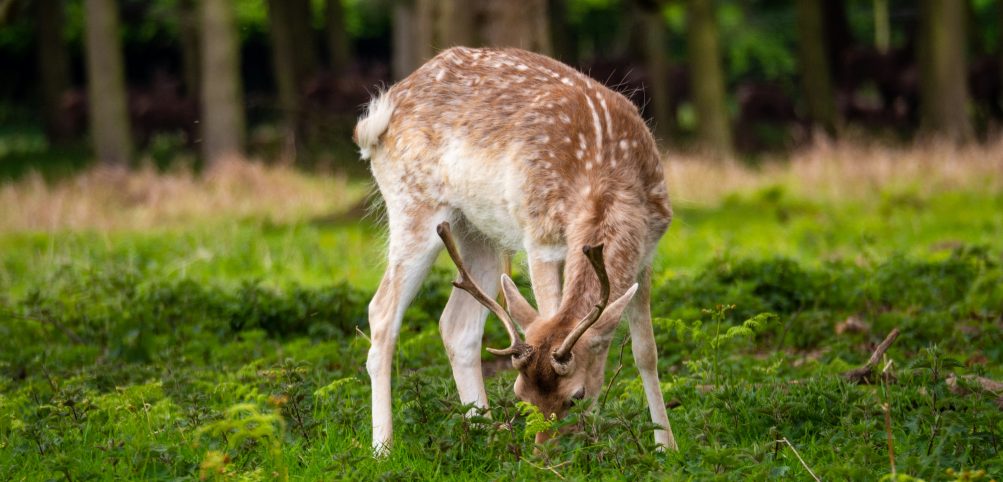Deer are notorious for their ability to thrive in a variety of environments, from woodlands and meadows to suburban backyards. As herbivores, their diet consists of a wide range of plants, fruits, and nuts, which change with the seasons and availability. One particular question that often arises for both hunters and nature enthusiasts is: Do deer eat black walnuts?
Black walnuts (Juglans nigra) are native to North America and are known for their distinctive, tough outer husk and rich, flavorful nut. While these nuts are loved by many humans and animals, deer are not always quick to indulge in them. But, as with any wildlife diet, the answer isn’t entirely straightforward. To understand whether or not deer eat black walnuts, we need to take a closer look at the dietary preferences of deer, the characteristics of black walnuts, and how environmental factors play a role in what deer choose to eat.
What Do Deer Eat? A General Overview
Deer are herbivores, meaning their diet consists of plant-based materials. Their specific food preferences depend on several factors, including the season, location, and available vegetation. Here are some of the key components of a typical deer diet:
- Grass and Herbaceous Plants: During the warmer months, deer primarily feed on tender grasses, clovers, dandelions, and a variety of other leafy plants. These plants are a good source of vitamins, minerals, and moisture.
- Fruits and Berries: When in season, deer love fruits such as apples, pears, berries, and acorns. These foods provide them with energy and essential nutrients.
- Nuts and Seeds: Deer are also known to eat nuts, especially acorns from oak trees, which are a major food source in the fall. Other nuts, like hickory, chestnut, and walnut, may also be consumed if available.
- Woody Plants: In winter, when other food sources are scarce, deer turn to woody plants, including the bark and twigs of shrubs and young trees. This allows them to survive harsh conditions when plant life is dormant.
- Agricultural Crops: Deer living near agricultural areas often feed on crops like corn, soybeans, and alfalfa. These are rich in carbohydrates and protein, helping deer maintain their energy levels through the colder months.
Do Deer Eat Black Walnuts?
While deer are known to consume a variety of nuts, including acorns and hickory nuts, black walnuts are a less common choice for deer, especially compared to other tree nuts. There are several reasons why deer may or may not prefer black walnuts:
- Tough Outer Husks: Black walnuts have a thick, hard outer husk that makes them more difficult to access than other nuts. While squirrels and some birds are adept at cracking open the tough shell, deer do not have the tools (like sharp teeth or claws) to open these nuts easily. As a result, deer are less likely to eat black walnuts, especially when easier-to-access food options are available.
- Chemical Compounds: Black walnut trees produce a chemical compound called juglone, which is toxic to some plants and can even affect the growth of other nearby vegetation. While juglone toxicity is not necessarily harmful to deer, it can affect the taste and nutritional value of the nuts. Some animals, including deer, may avoid black walnuts because the nuts contain this compound, which could make them less palatable.
- Seasonal Availability: Deer typically consume a wide variety of foods throughout the year, but their interest in specific plants and nuts is often tied to seasonal availability. During the fall, when black walnuts are ripening, deer are more likely to prefer acorns, which are more abundant and easier to eat. However, in areas where acorns and other preferred foods are scarce, deer may resort to eating black walnuts if they are accessible.
- Other Nut Choices: Deer are known to prefer other types of nuts over black walnuts. Acorns, hickory nuts, and chestnuts are among their favorite choices, especially during the fall months. These nuts are easier to access and typically do not have the strong flavor or tough husk of black walnuts.
How to Attract Deer with Black Walnuts
Although black walnuts may not be a top food choice for deer, there are ways to attract them to your property using these nuts. If you want to increase the chances of deer consuming black walnuts, consider the following strategies:
- Provide Access: If you have black walnut trees on your property, make sure the nuts are easily accessible. While deer can’t crack open the tough outer husk, they may still forage around fallen walnuts, especially if other food sources are limited.
- Mix with Other Foods: To entice deer to eat black walnuts, you can mix the nuts with other deer-friendly foods such as apples, corn, or acorns. This combination will help mask the strong flavor of black walnuts and encourage deer to nibble on them.
- Create a Natural Habitat: Deer are more likely to visit areas where they feel safe and where food sources are abundant. By creating a natural habitat with a variety of trees, shrubs, and plants, you’ll attract deer and increase the chances of them finding black walnuts during their foraging.
- Use Black Walnut Scent or Extract: Some hunters and wildlife enthusiasts use scents or extracts made from black walnuts to attract deer to certain areas. While this is not a foolproof method, it can encourage deer to investigate areas where black walnuts are present.
Health Considerations for Deer and Humans
While deer can eat black walnuts in small quantities, there are some health considerations to keep in mind:
- Juglone Toxicity: As mentioned earlier, juglone, a compound found in black walnut trees, can affect other plants around the tree. Although deer are less susceptible to juglone toxicity compared to plants, excessive consumption of black walnuts could potentially lead to digestive upset, especially if they are consuming them in large quantities.
- Consumption by Humans: For humans who enjoy foraging or harvesting black walnuts, it’s essential to know that the nuts need to be properly processed before consumption. The husk of the black walnut contains tannins that can be harsh on human digestion if not carefully removed. Additionally, the strong, earthy flavor may not be to everyone’s taste.
Conclusion
While deer do not typically prefer black walnuts over other types of nuts, they will eat them if other food sources are scarce or unavailable. The tough outer husk, strong flavor, and presence of juglone may discourage deer from actively seeking out black walnuts. However, in areas where other food sources are limited, especially during the fall months, deer may nibble on these nuts if they are easily accessible.
Ultimately, while black walnuts aren’t a primary food source for deer, they may still play a small role in the diet of these adaptable creatures, depending on the environment and availability of other foods. Whether you’re a hunter, wildlife enthusiast, or someone looking to attract deer to your property, understanding the diverse and ever-changing preferences of deer can help you better manage your land and attract wildlife in ways that benefit both the animals and the land.


